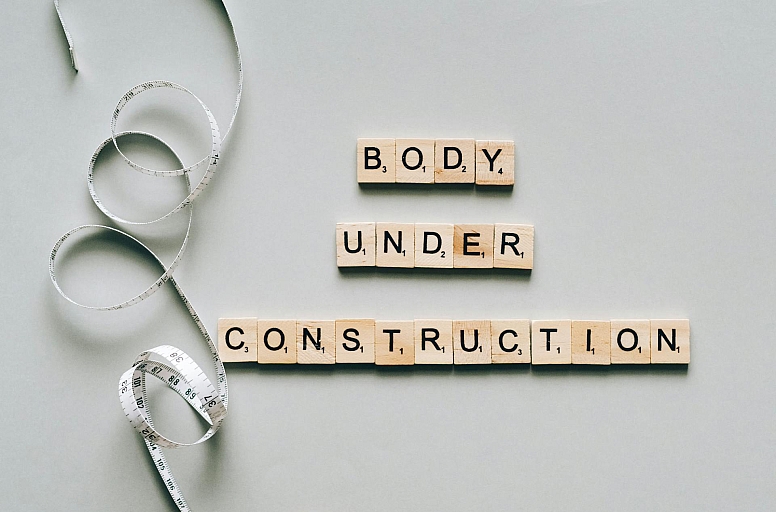
Fit for Life: Discovering the Power of Fitness and Nutrition
The Importance of Fitness and Nutrition
In today's fast-paced world, it's easy to get caught up in the hustle and bustle of daily life, often neglecting the fundamental aspects of our well-being. However, the importance of prioritizing our physical and mental health cannot be overstated. Fitness and nutrition are the cornerstones of a fulfilling and productive life, offering a multitude of benefits that extend far beyond the surface level.
At the heart of a healthy lifestyle lies the delicate balance between regular exercise, nutrition supplements and a balanced, nutrient-rich diet. These two elements work in tandem to not only improve our physical appearance but also to enhance our overall quality of life. By making fitness and nutrition a priority, we can unlock a world of possibilities, empowering ourselves to tackle the challenges of everyday life with renewed vigour and resilience.
It's important to recognize that the journey towards a healthier, more vibrant life is not a one-size-fits-all solution. Each individual's needs and goals may vary, and it's crucial to find an approach that aligns with your unique circumstances and preferences. However, the underlying principles of fitness and nutrition remain universal, providing a solid foundation upon which we can build our path to a life that is truly "fit for life."
Benefits of Regular Exercise
The benefits of regular exercise are well-documented and far-reaching. From boosting our cardiovascular health to improving our mental well-being and reducing acne scars, incorporating physical activity into our daily routines can have a profound impact on our overall quality of life.
One of the most significant advantages of regular exercise is its ability to enhance our cardiovascular health. By engaging in activities that elevate our heart rate, such as brisk walking, jogging, or cycling, we can strengthen our heart muscle and improve its efficiency in pumping blood throughout the body. This, in turn, can help lower our risk of developing heart disease, high blood pressure, and other cardiovascular-related conditions.
In addition to the physical benefits, regular exercise has also been shown to have a positive impact on our mental health. When we engage in physical activity, our bodies release endorphins, which are natural mood-boosting chemicals that can help alleviate symptoms of depression, anxiety, and stress. Furthermore, exercise has been linked to improved cognitive function, better sleep quality, and increased self-confidence, all of which contribute to a more balanced and fulfilling lifestyle.
It's important to note that the benefits of exercise extend beyond the immediate effects. Consistent physical activity can also help us maintain a healthy weight, improve our flexibility and muscle strength, reduce chest muscle pain and enhance our overall energy levels. By incorporating a variety of exercises into our routine, such as strength training, cardio, and flexibility-focused activities, we can achieve a well-rounded fitness regimen that caters to our individual needs and goals.
The Role of Nutrition in a Healthy Lifestyle

Alongside regular exercise, a balanced and nutritious diet plays a crucial role in maintaining a healthy lifestyle. The foods we consume not only fuel our bodies but also have a significant impact on our overall well-being, from our physical health to our mental and emotional state.
A well-rounded, nutrient-dense diet rich in whole, unprocessed foods can provide our bodies with the essential vitamins, minerals, and macronutrients necessary for optimal functioning. By prioritizing the consumption of fresh fruits, vegetables, lean proteins, whole grains, and healthy fats, we can ensure that our bodies are receiving the nourishment they need to thrive and for IVF treatment as well.
Beyond the physical benefits, a balanced diet can also have a profound impact on our mental health. Certain nutrients, such as omega-3 fatty acids, B vitamins, and antioxidants, have been linked to improved cognitive function, better mood regulation, and reduced risk of mental health disorders like depression and anxiety. By incorporating these nutrient-dense foods into our daily meals, we can support our overall mental well-being and enhance our ability to navigate the challenges of everyday life.
It's important to recognize that the concept of "healthy eating" is not a one-size-fits-all approach. Individual dietary needs and preferences may vary, and it's crucial to find a nutritional plan that aligns with your unique circumstances, lifestyle, and health goals. By working with healthcare professionals, such as registered dietitians or nutritionists, we can develop a personalized nutrition strategy that empowers us to make informed choices and achieve sustainable, long-term results.
Fitness and Nutrition Statistics
The importance of fitness and nutrition is further underscored by the wealth of statistical data that highlights their profound impact on our overall health and well-being. These numbers serve as a powerful reminder of the transformative potential that lies within the realm of physical activity and nutritious eating.
According to the World Health Organization, regular physical activity can reduce the risk of cardiovascular disease by up to 35%, the risk of type 2 diabetes by up to 40%, and the risk of certain types of cancer by up to 25%. Furthermore, studies have shown that individuals who engage in at least 150 minutes of moderate-intensity exercise per week can expect to live up to 3.4 years longer than their sedentary counterparts.
When it comes to the role of nutrition, the data is equally compelling. The Centers for Disease Control and Prevention (CDC) reports that a diet rich in fruits and vegetables can reduce the risk of chronic diseases, such as heart disease, stroke, and certain types of cancer, by up to 27%. Additionally, research has indicated that a balanced, nutrient-dense diet can improve cognitive function, enhance mood, and support a healthy immune system.
These statistics serve as a powerful reminder of the importance of integrating fitness and nutrition into our daily lives. By making informed choices and prioritizing our physical and mental well-being, we can unlock a world of possibilities and live a life that is truly "fit for life."
Developing a Fitness Routine

Embarking on a fitness journey can be both exciting and daunting, especially for those who are new to the world of physical activity. However, with the right approach and a little bit of determination, anyone can develop a sustainable fitness routine that aligns with their individual goals and preferences.
The key to a successful fitness routine lies in finding activities that you genuinely enjoy. Whether it's a high-intensity workout at the gym, a leisurely hike through nature, or a dance class that gets your heart pumping, the key is to choose exercises that you look forward to rather than dread. By incorporating activities that you find genuinely fulfilling, you'll be more likely to stick to your routine and make it a lasting part of your lifestyle.
It's also important to remember that a well-rounded fitness routine should include a variety of exercises that target different muscle groups and physiological systems. This can include a combination of cardiovascular exercises, strength training, and flexibility-focused activities. By diversifying your workout regimen, you can ensure that you're comprehensively challenging your body, leading to greater overall fitness and resilience.
As you embark on your fitness journey, it's crucial to start at a pace that is comfortable and sustainable for you. Gradual, incremental progress is often more effective than drastic, unsustainable changes. Begin with a manageable number of workout sessions per week and gradually increase the frequency and intensity as your fitness level improves. This approach will not only help you avoid burnout but also foster a sense of accomplishment and motivation as you witness your progress over time.
Creating a Balanced and Nutritious Meal Plan
Alongside a well-designed fitness routine, a balanced and nutritious meal plan is essential for achieving optimal health and well-being. By focusing on the quality and composition of the foods we consume, we can fuel our bodies with the essential nutrients needed to support our physical and mental performance.
At the heart of a balanced meal plan lies the incorporation of a variety of whole, unprocessed foods. This includes an abundance of fresh fruits and vegetables, lean proteins, whole grains, and healthy fats. By prioritizing these nutrient-dense options, we can ensure that our bodies are receiving the vitamins, minerals, and macronutrients necessary for proper functioning and overall wellness.
In addition to the selection of wholesome ingredients, it's important to pay attention to the portion sizes and macronutrient balance of our meals. A well-rounded diet should consist of an appropriate balance of carbohydrates, proteins, and fats, each of which plays a vital role in supporting our energy levels, muscle recovery, and overall health. By being mindful of these macronutrient ratios, we can create a meal plan that aligns with our individual needs and fitness goals.
It's important to note that a balanced and nutritious meal plan is not about strict rules or rigid restrictions. Instead, it's about finding a sustainable approach that allows you to enjoy the foods you love while prioritizing your overall health and well-being. By experimenting with different recipes, exploring new ingredients, and incorporating a variety of flavours, you can create a meal plan that is both nourishing and satisfying, setting you up for long-term success on your fitness and nutrition journey.
Tips for Staying Motivated on Your Fitness Journey

Embarking on a fitness and nutrition journey can be incredibly rewarding, but it's not without its challenges. Maintaining motivation and consistency can be a significant hurdle, especially when faced with the demands of everyday life. However, with the right strategies and a positive mindset, you can overcome these obstacles and stay committed to your health and wellness goals.
One of the most effective ways to stay motivated is to set achievable, measurable goals. Whether it's a specific weight-loss target, a personal best in a particular exercise, or a desired level of cardiovascular fitness, having a clear and quantifiable goal can provide a sense of direction and purpose to your fitness journey. As you work towards these goals, celebrate your small victories and use them as a source of inspiration to keep pushing forward.
Surrounding yourself with a supportive community can also be a powerful tool for maintaining motivation. Joining a fitness class, finding an exercise buddy, or connecting with like-minded individuals on social media can provide a sense of accountability and camaraderie that can be invaluable in keeping you motivated and engaged. Sharing your progress, challenges, and successes with others can not only help you stay on track but also inspire and encourage those around you.
Another key to staying motivated is to regularly review and adjust your fitness and nutrition plan. As your body adapts and your goals evolve, it's essential to be willing to make changes to your routine to keep it challenging and engaging. This could involve trying new exercises, experimenting with different nutritional approaches, or setting new, more ambitious targets. By continuously challenging yourself and keeping your fitness journey fresh, you can maintain a sense of excitement and accomplishment that will fuel your ongoing motivation.
The Power of Tracking Progress and Setting Goals
Embarking on a fitness and nutrition journey is an empowering experience, but it's easy to feel lost or discouraged without a clear roadmap. That's where the power of tracking progress and setting achievable goals comes into play. By taking a data-driven approach to your health and wellness, you can gain valuable insights, measure your success, and stay motivated throughout your journey.
One of the most effective ways to track your progress is to monitor key metrics such as weight, body composition, cardiovascular fitness, and strength. By regularly recording and analyzing these data points, you can gain a deeper understanding of how your body is responding to your fitness and nutrition efforts. This information can then be used to fine-tune your approach, identify areas for improvement, and celebrate your accomplishments along the way.
In addition to tracking your physical progress, it's also important to consider the impact of your fitness and nutrition regimen on your mental and emotional well-being. Factors such as energy levels, mood, and stress management can all be influenced by your lifestyle choices. By monitoring these subjective metrics, you can gain a holistic understanding of how your overall health and wellness are evolving, allowing you to make informed decisions and adjustments to your routine.
As you embark on your fitness and nutrition journey, it's crucial to set achievable, time-bound goals that align with your unique needs and aspirations. Whether it's a specific weight-loss target, a personal best in a particular exercise, or a desired level of cardiovascular fitness, having a clear and measurable objective can provide a sense of direction and purpose to your efforts. As you work towards these goals, celebrate your small victories and use them as a source of inspiration to keep pushing forward, ultimately unlocking your full potential for a life that is truly "fit for life."
Fitness and Nutrition Resources and Tools
In the ever-evolving world of health and wellness, there is no shortage of resources and tools available to support your fitness and nutrition journey. From mobile apps and online communities to professional guidance and educational materials, the landscape is brimming with opportunities to enhance your knowledge, track your progress, and stay motivated throughout your quest for a healthier, more vibrant lifestyle.
One of the most accessible and convenient resources available today is the wide array of mobile apps designed to support fitness and nutrition goals. From comprehensive fitness tracking platforms to personalized meal planning tools, these digital solutions can provide a wealth of data, insights, and guidance to help you stay on track. By leveraging the power of technology, you can seamlessly integrate your health and wellness efforts into your daily routine, making it easier to maintain consistency and achieve your desired outcomes.
In addition to digital resources, it's also important to seek out professional guidance and expertise when embarking on your fitness and nutrition journey. Connecting with qualified healthcare providers, such as registered dietitians, personal trainers, or nutritionists, can provide you with a tailored, evidence-based approach to improving your overall health and well-being. These experts can help you navigate the complexities of fitness and nutrition, offering personalized recommendations, accountability, and support to ensure your success.
Furthermore, educational materials, such as informative blogs, podcasts, and online courses, can be invaluable in deepening your understanding of the science and principles behind fitness and nutrition. By expanding your knowledge, you can make more informed decisions, develop a stronger sense of self-awareness, and cultivate a lifelong commitment to a healthy, balanced lifestyle. Embracing these resources can empower you to take control of your health and well-being, paving the way for a life that is truly "fit for life."
Embracing a Fit and Healthy Lifestyle

As we conclude our journey, it's clear that the power of fitness and nutrition cannot be overstated. By prioritizing our physical and mental well-being, we unlock a world of possibilities, empowering ourselves to lead fulfilling, productive, and vibrant lives.
The benefits of regular exercise and a balanced, nutrient-rich diet are far-reaching, spanning from improved cardiovascular health and enhanced cognitive function to better mood regulation and increased energy levels. These elements work in tandem to support our overall well-being, enabling us to tackle the challenges of everyday life with renewed vigour and resilience.
However, the path to a "fit for life" lifestyle is not a one-size-fits-all solution. Each individual's needs and goals may vary, and it's crucial to find an approach that aligns with your unique circumstances and preferences. By embracing the guidance and resources available, you can develop a sustainable fitness and nutrition routine that not only helps you achieve your health objectives but also brings a sense of joy and fulfilment to your daily life.
As you continue to navigate your fitness and nutrition journey, remember to celebrate your small victories, stay accountable, and remain flexible in your approach. Embrace the power of tracking progress and setting achievable goals, and surround yourself with a supportive community that can inspire and encourage you along the way. By doing so, you'll unlock the true potential of a life that is "fit for life," empowering you to live with purpose, vitality, and a renewed appreciation for the gift of good health.









